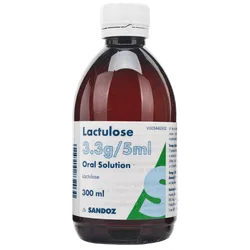Constipation is a common and often uncomfortable part of pregnancy. From the early weeks to the final trimester, changes in your body can make bowel movements irregular and difficult. But you don't have to suffer in silence. Understanding why it happens and what safe options are available is the first step towards finding relief.
At Weldricks Pharmacy, we understand that finding safe solutions during pregnancy is your top priority. Our guide, developed with the expertise of our pharmacists, is here to provide clear, practical advice on managing constipation with confidence. From simple lifestyle changes to effective over-the-counter treatments, we're here to help you feel more comfortable and get back to enjoying your pregnancy.
The Causes of Constipation During Pregnancy
Constipation during pregnancy is primarily caused by two key factors:
- Hormonal Changes: The increase in the hormone progesterone relaxes the muscles in your body, including the muscles in your intestines. This slows down the movement of food and waste, leading to constipation.
- Pressure from the Womb: As your baby grows, your expanding womb places increasing pressure on your bowel. This can further impede bowel movements, particularly in the later stages of pregnancy.
Other factors, such as changes in diet, reduced physical activity, and iron supplements, can also contribute to the issue.
Safe and Effective Ways to Find Relief
The good news is that most cases of constipation in pregnancy can be managed effectively with simple, safe strategies. We always recommend starting with lifestyle changes before considering medication.
Dietary and Lifestyle Changes
Making a few simple adjustments can make a big difference:
- Increase Your Fibre Intake: Aim to eat plenty of fibre-rich foods like fruits, vegetables, whole grains, and legumes. Soluble fibre, found in oats and nuts, is particularly helpful.
- Stay Hydrated: Drinking plenty of water throughout the day is crucial. This helps to soften your stools, making them easier to pass. Herbal teas and fruit juices can also contribute to your fluid intake.
- Regular, Gentle Exercise: Staying active can help to stimulate bowel function. Safe exercises like walking, swimming, or prenatal yoga can be very beneficial.
- Establish a Routine: Try to go to the toilet at the same time each day, for example, after breakfast, to encourage regularity.
Over-the-Counter Treatments
If lifestyle changes aren't enough, some over-the-counter products are considered safe for use during pregnancy. It is essential to choose a product that is suitable and to always read the patient information leaflet.
- Lactulose Oral Solution: This is a gentle osmotic laxative that works by drawing water into your bowel to soften stools. It is often recommended as a first-line treatment for constipation in pregnancy.
- Fybogel Hi-Fibre Sachets: A bulk-forming laxative that increases the bulk of your stool, making it easier to pass. It is made from natural ingredients and is a good option for gentle relief.
- Glycerin Suppositories: These are a short-term option that can help to lubricate and stimulate the bowel, providing quick relief for occasional constipation.
Before taking any medication, especially during pregnancy, you should always consult with a pharmacist or your GP to ensure it is the right option for you.
When to See a Doctor
While most cases can be managed at home, it's important to seek advice from your GP or midwife if:
- Your constipation is severe or painful and is not improving with lifestyle changes.
- You experience severe stomach pain, bloating, or cramping.
- You see blood in your stool.
- You have any other concerns about your symptoms or the safety of a medication.










